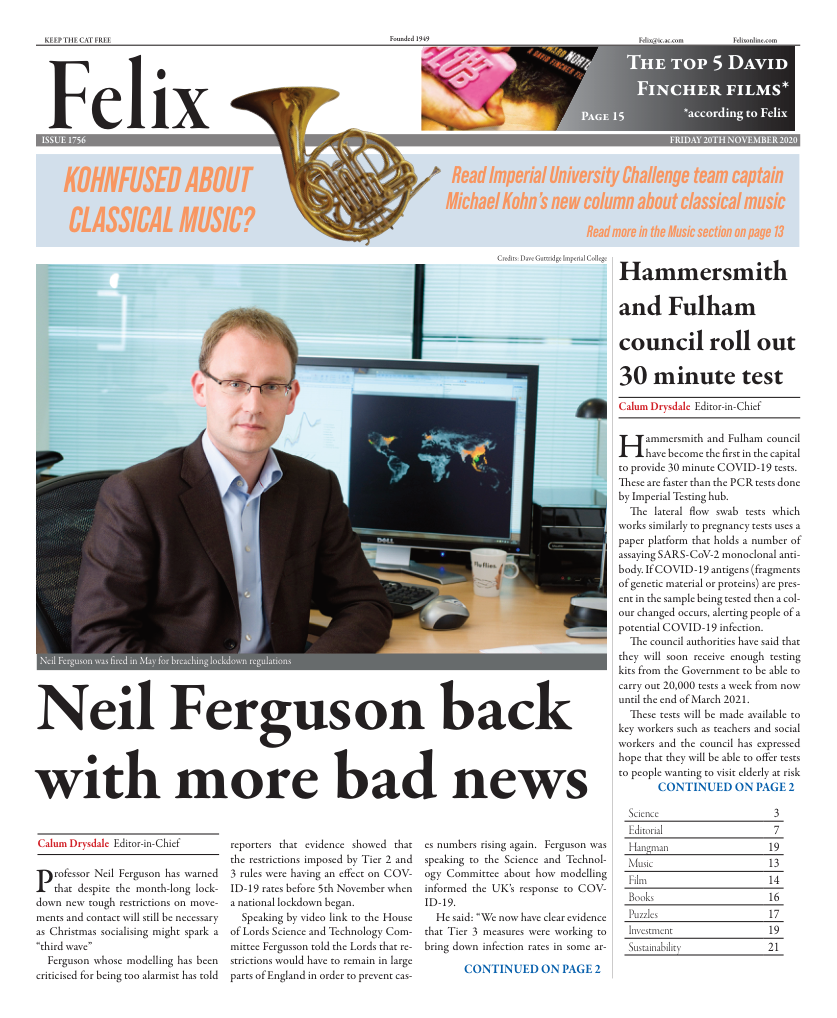A conversation with Tom Whipple, Science editor of the Times
Science writer Allana Cullen attended the Felix Science event, A conversation with Tom Whipple
On Friday, November 13th, Imperial students were lucky enough to have a conversation with Tom Whipple, Science Editor of The Times, during an online event organised by Felix.
Speaking to aspiring journalist students, Tom recounted how he first got into journalism an interest alongside his Mathematics degree. For this work he was named the Guardian Student Feature Writer of the Year. From there, Tom’s began his career as a freelancer, resulting in a job at The Times, where eventually he became Science Editor.
In this role, Tom has written about a variety of topics: from the bizarre concept known as the leap second which causes havoc on Wall Street to the people who refuse to leave the Chernobyl exclusion zone. His job has also allowed him to travel, taking him across the world to chase the latest science stories.
Interested in journalism yourself? During the interview, Tom offered 3 tips to writing a good science story:
1. Interview the scientists. Getting the human voice into your story is potentially much more interesting than the canned quotes that the press release offers. Ask why the author of the paper is interested in the finding, and how the science was done.
2. Read the paper. Press releases are a great resource for finding the story, but delving into the paper and getting to grips with the science yourself is a much more thorough source of information.
3. Science is received better as a feature - not hard news. Try and go deeper within your story than the classic headline, breakthrough, pyramid structure. Humanise and write a richer, more detailed piece.
A good science journalist is also a responsible one. Science stories appear similar across most outlets because they are constructed by objective journalists trying to get the science right. Unlike some aspects of journalism, science stories tend to be the least subject to editorial pressures. If you are concerned about accuracy, it is acceptable to send a paragraph to the scientist to sign off on technical accuracy – but no need for copy approval. And if you find yourself writing in complex jargon, it is probably a sign you do not understand the science fully; go back and research more so that you can explain it in layman terms.
For those who aspire to be a science journalist like Tom, in his opinion, the commonality in journalism is those who persevered – it isn’t an easy field to break into, but persistence is key to getting to where you want to be. Take up all the opportunities you can – graduate trainee schemes or getting your name on a few national by-lines (or even writing for your student newspaper *cough cough*) is a good place to start.






